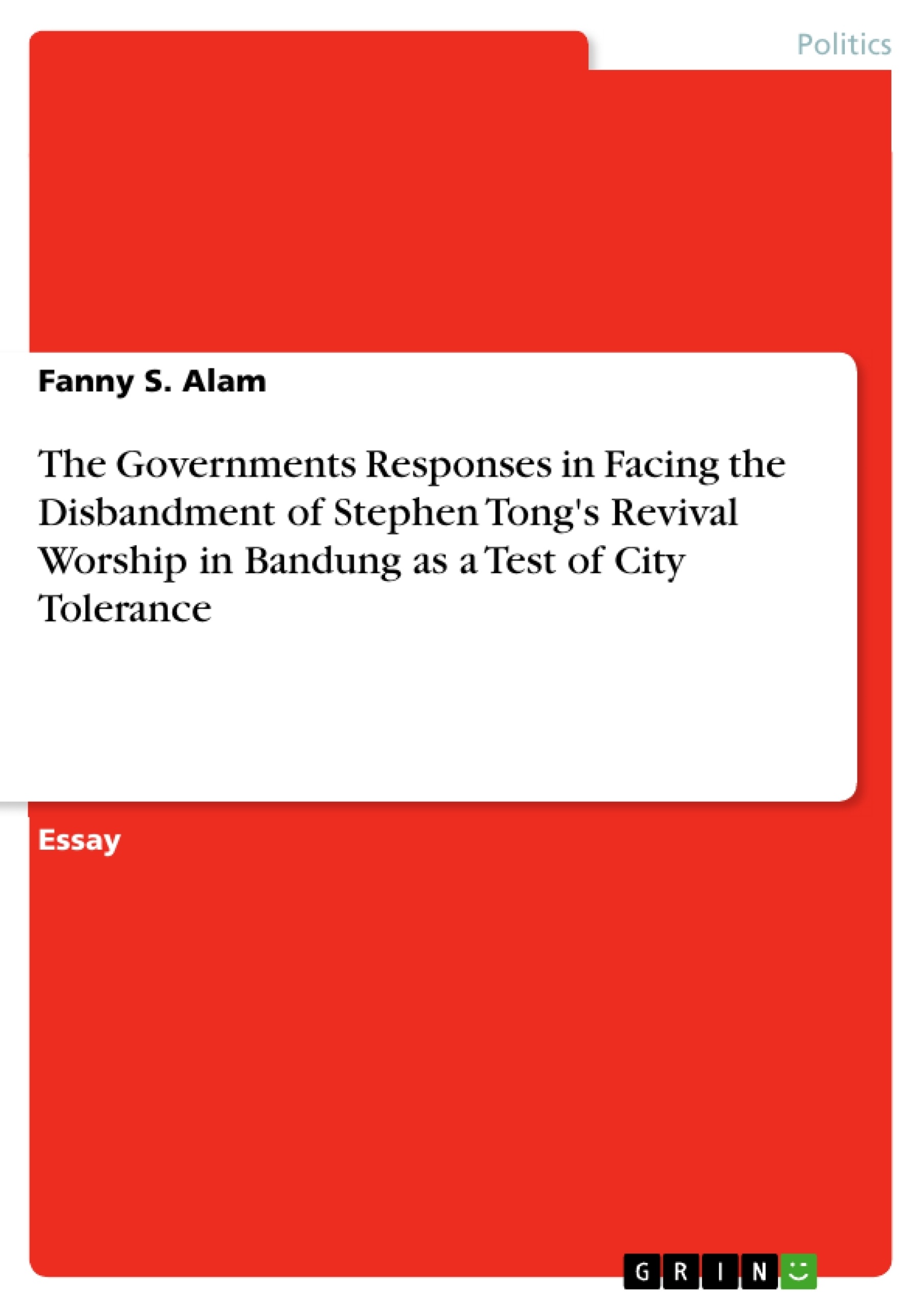Abstract
By Fanny S Alam
6 December 2016, public in Bandung were shocked with the issue of disbandment of Stephen Tong's Revival Worship at Sabuga ITB. The event was protested by PAS, Penegak Ahlul Sunnah, one of communities, when continued up to the evening regarding the worship for the adults group.
The community's objection to the event emerged in accordance with The Joint Ministerial Decree of Ministry of Religion Affairs and Ministry of Internal Affairs no 9/2006 and no 8/2006, underlining that such activities are supposed to be conducted in churches as well as pointed the incompletion of administration and legal permission. To respond such a situation, the committee responded through the release of police's recommendation no STTP/YANMIN/59/Xl/2016/DITINTELKAM .
Both the mayor and governor shared their different responses corresponding the worship disbandment. The mayor confirmed his objections to the community's action to disband the worship, meanwhile the governor mentioned it as a minor incident not to be exaggerated.
Through a direct observation of news in various media added with an exploration of significant regulations in diversity issues, the author underlines the significance of government's response to face the worship disbandment. It is important to view the responses since Bandung has been stated as a city of human rights. It brings some logical consequences to eliminate any practice of intolerance and discrimination to any minority group.
Keywords : government, tolerance, diversity



